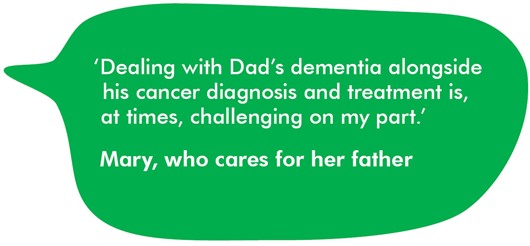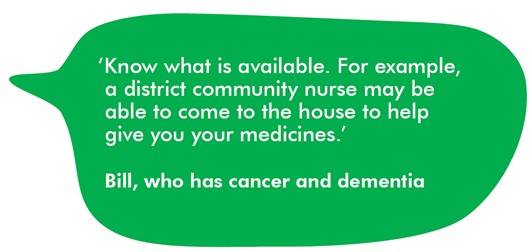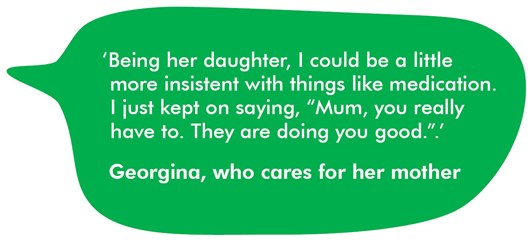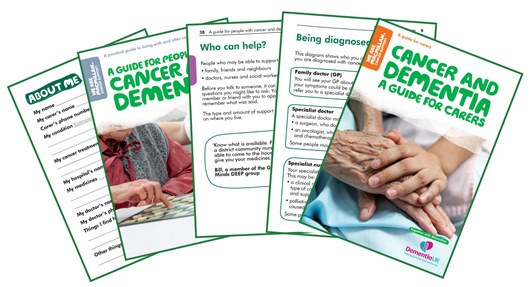About 850,000 people are living with dementia in the UK. Many people living with dementia also have other health conditions, including cancer. The number of people living with both dementia and cancer is growing. In this blog, written by senior editor Sarah, we explain more about the effects of living with cancer and dementia and how you can help someone with these conditions.

Living with cancer and dementia
Having both conditions can be difficult for the person with dementia, and their carers, family and friends. People with dementia sometimes have:
Building a support network of friends, family and neighbours can make a big difference. There are also community health and social care professionals who can support you.

How to help someone with dementia and cancer to look after their health
Looking after someone with cancer and dementia can be both rewarding and challenging. Depending on the stage of their illness, they may need lots of help with everyday activities. It’s also important to help them to look after their general health. Here are some tips:

Remember to look after yourself too. Making time for you, taking breaks and getting support is important. Talking to other people in a similar situation may be helpful.
Macmillan’s new information about cancer and dementia
We have written some new information about living with cancer and dementia. We wrote it in partnership with Dementia UK. For more information about different types of dementia, you can call Dementia UK on 0800 888 6678. We have two new booklets:

To see what else Macmillan's cancer information team has been blogging about, please visit our blog home page! You can subscribe to receive our blogs by email or RSS too.
We're with you every step of the way
The Macmillan team is here to help. Our cancer support specialists can answer your questions, offer support, or simply listen if you need a chat. Call us free on 0808 808 00 00.
Comments? Feel free to add them below (you need to be logged in).
Keep in touch Follow Macmillan’s cancer information team on Twitter @mac_cancerinfo
Whatever cancer throws your way, we’re right there with you.
We’re here to provide physical, financial and emotional support.
© Macmillan Cancer Support 2025 © Macmillan Cancer Support, registered charity in England and Wales (261017), Scotland (SC039907) and the Isle of Man (604). Also operating in Northern Ireland. A company limited by guarantee, registered in England and Wales company number 2400969. Isle of Man company number 4694F. Registered office: 3rd Floor, Bronze Building, The Forge, 105 Sumner Street, London, SE1 9HZ. VAT no: 668265007